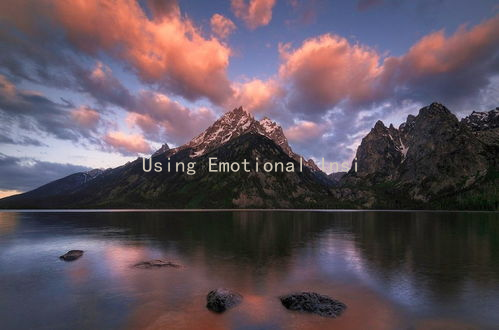Understanding Emotional Disturbances: Effective Communication Tips for Couples
In relationships, emotional disturbances can often arise due to misunderstandings, miscommunication, or unexpressed feelings. Effective communication is vital for couples to navigate these challenges and foster a healthy partnership. Here are some practical tips to help couples enhance their communication and manage emotional disturbances effectively.
1. Create a Safe Space for Dialogue
To discuss sensitive topics, it’s essential to establish an environment where both partners feel safe and respected. Choose a private setting free from distractions, and agree on a time to avoid discussing heavy issues when either partner is stressed or tired. Make it clear that the goal is to understand each other, not to blame or criticize.
2. Use I Statements
When expressing feelings, use I statements to take ownership of your emotions. For instance, instead of saying, You never listen to me, you could say, I feel unheard when I try to share my thoughts. This approach helps reduce defensiveness and fosters a more empathetic conversation.
3. Practice Active Listening
Active listening involves fully concentrating on what your partner is saying, rather than planning your response while they speak. Show that you are engaged by nodding, maintaining eye contact, and providing verbal affirmations like I see or I understand. After they finish speaking, paraphrase what you’ve heard to ensure clarity and to validate their feelings.
4. Stay Focused on the Issue at Hand
When discussing emotional disturbances, it’s easy for conversations to veer off-topic or escalate with past grievances. Commit to addressing only the current issue. If past problems arise, acknowledge them briefly but gently bring the conversation back to the main topic. This helps in avoiding the feeling of being overwhelmed or attacked.
5. Emotions Are Valid
Recognize that both partners’ feelings are valid, regardless of whether they agree on the underlying issue. Validate your partners emotions by saying things like, I can understand why you feel that way, or Your feelings are important to me. This acknowledgment fosters connection and understanding, making it easier to resolve conflicts.

6. Take Timeout if Necessary
If emotions run high and the conversation becomes heated, don’t hesitate to take a timeout. Suggest a temporary break by stating, I think we need to pause and gather our thoughts. Taking time apart can prevent hurtful comments and allow both partners to cool down, resulting in a more constructive discussion later.
7. Seek Compromise and Solutions
Once both partners have expressed their feelings, shift the focus toward finding compromises or solutions. Ask each other, What do you think would help resolve this? or How can we prevent this from happening in the future? Collaborative problem-solving reinforces teamwork and strengthens the bond between partners.
8. Regular Check-Ins
Establish a routine of regular check-ins, whether weekly or monthly. During these sessions, discuss not only potential issues but also share positive feelings and appreciation for each other. Checking in can prevent minor misunderstandings from escalating into significant conflicts.
9. Seek Professional Help Together
If emotional disturbances persist despite your best efforts, consider seeking help from a therapist or counselor. Professional guidance can provide new perspectives and tools tailored to your relationship dynamic, enabling both partners to communicate more effectively.
10. Remember to Prioritize Each Other
Finally, amidst busy lives, make it a priority to nurture your relationship. Engage in activities that both partners enjoy, express appreciation regularly, and invest time in each other. A strong emotional connection can serve as a buffer against misunderstandings and can fortify your ability to communicate effectively.
In conclusion, understanding emotional disturbances is an ongoing journey for couples. By embracing effective communication techniques, partners can navigate conflicts compassionately, deepen their emotional intimacy, and build a resilient partnership that thrives on mutual respect and understanding.





